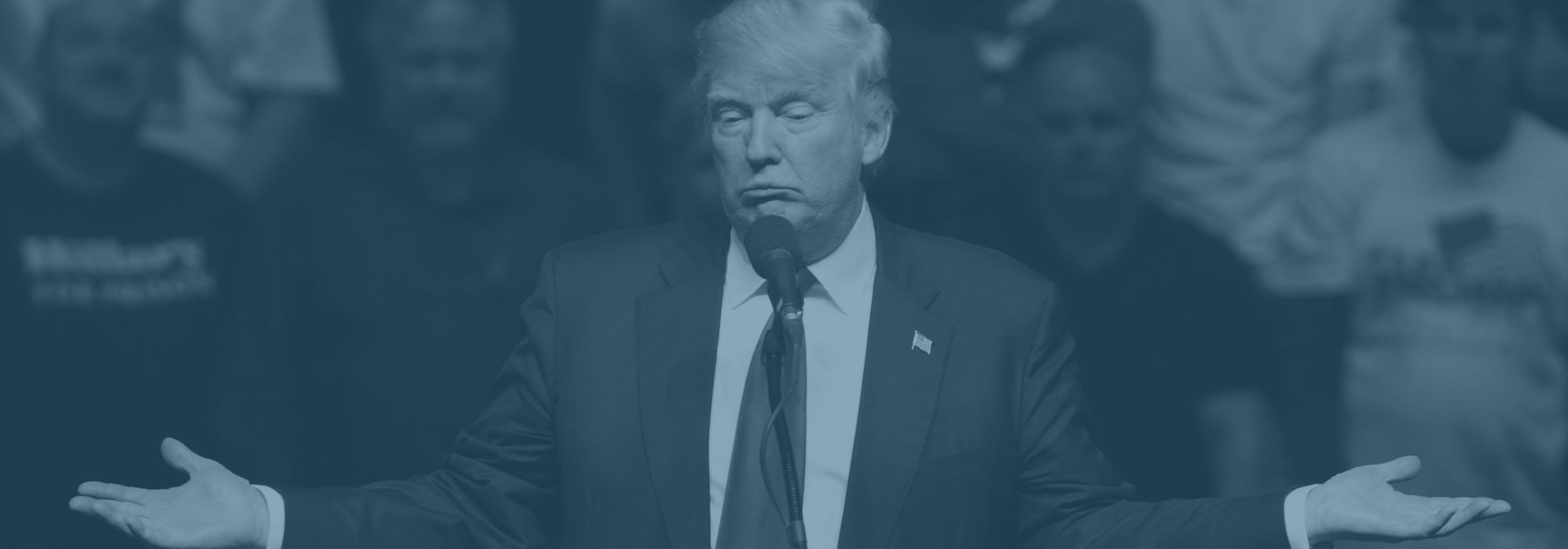Originally produced on May 15, 2017 for Mauldin Economics, LLC

By George Friedman
With no fat lady in sight as the opera unfolds in Washington, it is useful to stop and consider an interesting point: For all the tumult that has defined Donald Trump’s domestic policy, his foreign policy is relatively stable. There are some notable differences, of course, but what went before is pretty much what is going on now – a startling revelation, given the expectations.
During his campaign, Trump promised to disengage from burdensome commitments to other countries, shifting the risks and costs of the security of allies away from the United States. He promised to enact policies that promote U.S. national interests, which he defined as U.S. economic security, not global security.
Early Tests
Tests to these campaign pledges came early, and in most cases Trump’s response has been in keeping with prior policies. In Syria, the Assad regime released sarin gas on a village (the claims that it was not the Syrians who did this have mostly died down). Trump regarded the attack as morally unacceptable, so he ordered the U.S. military to attack a Syrian air base. And even though the airstrike did precious little to affect the outcome of the war, Barack Obama shied away from doing even this when his famous red line was crossed. Trump, in a situation where U.S. interests, narrowly understood, were not involved, responded.
Then there was North Korea, a country that is not currently a nuclear threat to the United States. It is a threat to Japan and South Korea, and indeed during the campaign Trump said Japan ought to develop its own nuclear weapons. In other words, he said that North Korea was a Japanese and South Korean problem, not a U.S. problem. But when it appeared that North Korea was nearing the point where it had deliverable nuclear weapons, he got involved, positioning the United States for potential military action as it led diplomatic confrontations with Pyongyang. This has been the definition of U.S. policy on North Korea for several administrations.
And it is a policy that features prominently in Washington’s relationship with Beijing. Trump has said the United States would make some trade concessions to China if China helped the United States on the North Korea issue. This is a long-standing strategy Washington has pursued. In fact, there has generally been more continuity than disruption in U.S.-China relations, with an apparently cooperative rapport between Trump and Chinese President Xi Jinping. Accepting the status quo at least for now, the United States has not shifted its stance on China.
Nor has it shifted its stance on Russia. The expected warming in U.S.-Russia relations has not happened. Washington has neither abandoned its sanctions policies nor backed off its commitment to the Ukrainians. U.S. deployments in Eastern Europe have continued. Larger air bases are being built in Romania, and troop rotations in the Baltics and Poland are underway. And though this may be an extension of domestic U.S. politics, it is nonetheless in keeping with the continuity of U.S. policy in general.
The U.S. relationship with NATO, meanwhile, remains intact. Trump campaigned on the belief that NATO should be redefined, but he has since reaffirmed the U.S. commitment to NATO, though he has notably asked for increased European spending. Under the Trump administration, relations with Germany are cool but no worse off than they were under the Obama administration. Whatever changes may come, the relationship is still defined by continuity.
In the jihadist wars, Obama launched an as-yet-unfinished attack on Mosul. Trump has increased forces in Iraq and Syria and has announced that more troops will be sent to Afghanistan. As with Obama’s occasional reversals of his withdrawal, the troop commitments are relatively small, unlikely to change much in the long term. In other words, they are enough to contain the Islamic State and the Taliban for a spell without changing enduring realities.
Waiting a Little Longer
Everyone seems to be ignoring the fact of the matter. Trump’s critics want to portray him as someone who is recklessly undermining the foundations. His supporters want to portray him as someone who is decisively redefining U.S. policy. But though the atmospherics have changed, very little else has. The countries that hope or fear that the United States may soon behave fundamentally differently will have to wait a little longer.
Thus is the reality of foreign policy. Regardless of the wishes of presidents, the United States is embedded in the global system economically, militarily and politically. Sudden moves – outside of rhetoric – are impossible. The structure of the system forces nations to move slowly. Economic relations are extremely complex and therefore resistant to change. Each move has consequences that are painful, even if the relationship as a whole is advantageous.
Put differently, the international posture of the United States is even harder to change than its health care system. It is a posture that has been sinking its roots into the international system since World War II; altering it can be difficult if not impossible without damaging U.S. interests. In the end, presidents are constrained by reality. And the reality is that the United States, which accounts for a quarter of the world’s economy and is the largest military power, is deeply integrated with the rest of the world. Disengagement may be desirable but it may not be viable, at least not in the short run.
A hundred or so days is an absurdly short period of time to assess long-term policy, but the fact is that so far Trump’s foreign policy has been careful and conventional. It may be what he wants. It may be the case that he hasn’t fully turned his attention to it. Presidents either avoid the third rails or engage them and achieve things. Aside from major wars like World War II, history moves slowly, and presidents are hostages to history. What is certain is that the claims of recklessness cannot so far be laid at Trump’s door. Nor can those who expected dramatic change feel rewarded.







